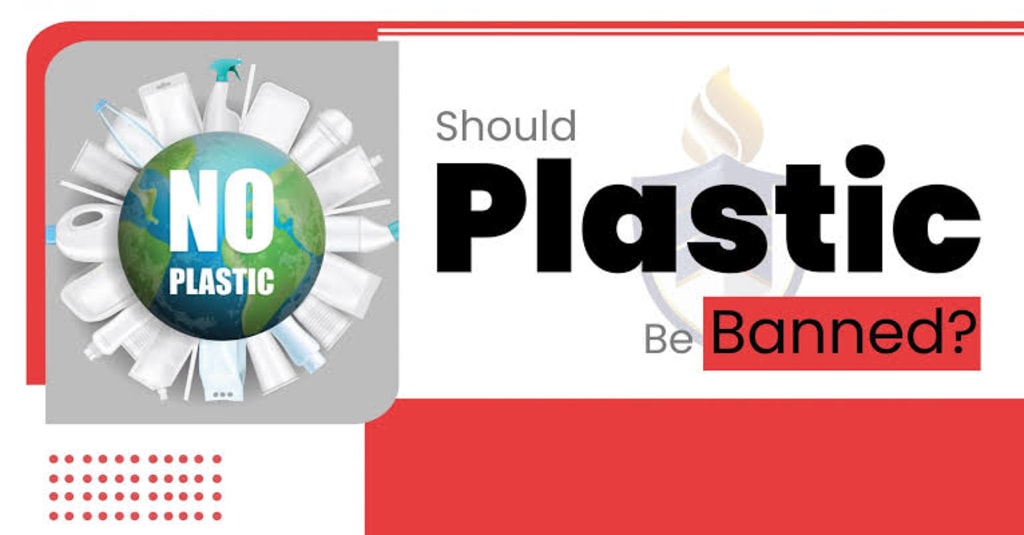Should plastic be banned?
Should plastic be banned?

Plastic is a ubiquitous material used in everyday life. It has a wide range of applications, including packaging, construction, and consumer products. However, the overuse of plastic has led to a significant environmental problem. Plastic pollution has become a serious concern, and many people are advocating for the ban of plastic. In this article, we will discuss the reasons why plastic should be banned and the potential benefits of doing so.
The Environmental Impact of Plastic
Plastic pollution is a significant environmental problem. Every year, millions of tons of plastic waste end up in the oceans, harming marine life and polluting our beaches. Plastic debris can harm marine animals that ingest or get entangled in it. It can also affect the food chain, as microplastics can enter the food we eat. Additionally, plastic pollution can harm the environment by releasing harmful chemicals and toxins into the soil and water.
The Energy and Resource Intensive Production of Plastic
The production of plastic requires a significant amount of energy and resources. According to the World Economic Forum, the production of plastic accounts for about 8% of global oil consumption. This energy-intensive production process contributes to the emission of greenhouse gases, which contribute to climate change. Additionally, the production of plastic requires a significant amount of water and other resources, which can cause environmental degradation and lead to water scarcity.
Alternatives to Plastic
Fortunately, there are alternatives to plastic that are more environmentally friendly. For example, paper, glass, and metal can be used as substitutes for plastic packaging. These materials are biodegradable, recyclable, and less harmful to the environment. Bioplastics, which are made from renewable resources, are also an alternative to traditional plastic. However, these alternatives can be more expensive than plastic, and some may not be as durable.
The Economic Impact of Banning Plastic
The ban of plastic could have significant economic impacts. The plastic industry is a major employer, and many businesses rely on plastic products for their operations. A ban on plastic could lead to job losses and economic disruption. However, there are potential economic benefits of banning plastic as well. For example, the use of alternative materials could create new jobs in manufacturing and recycling. Additionally, the reduction of plastic pollution could lead to savings in the cleanup and restoration of affected areas.
The Role of Government in Banning Plastic
Governments play a crucial role in the ban of plastic. Policies such as taxes on plastic bags and the ban on single-use plastic items have been implemented in various countries. These policies can be effective in reducing the use of plastic and promoting alternatives. However, it is essential to ensure that these policies are enforced and that businesses comply with them.
The Role of Individuals in Banning Plastic
Individuals also play a significant role in the ban of plastic. By reducing their use of plastic, individuals can contribute to the reduction of plastic pollution. This can be done by using reusable bags, water bottles, and containers, and avoiding single-use plastic items such as straws and utensils. Additionally, individuals can support businesses that use alternative materials and advocate for policies that promote the reduction of plastic use.
Conclusion
In conclusion, the ban of plastic is a necessary step towards protecting the environment and promoting sustainable practices. The environmental impact of plastic pollution, the energy and resource-intensive production of plastic, and the potential economic benefits of banning plastic make it clear that we need to take action. The availability of alternatives to plastic, the role of government and individuals, and the potential economic benefits of banning plastic provide hope for a sustainable future. Therefore, we must act collectively to reduce the use of plastic and promote sustainable practices that protect the environment for future generations





Comments
There are no comments for this story
Be the first to respond and start the conversation.